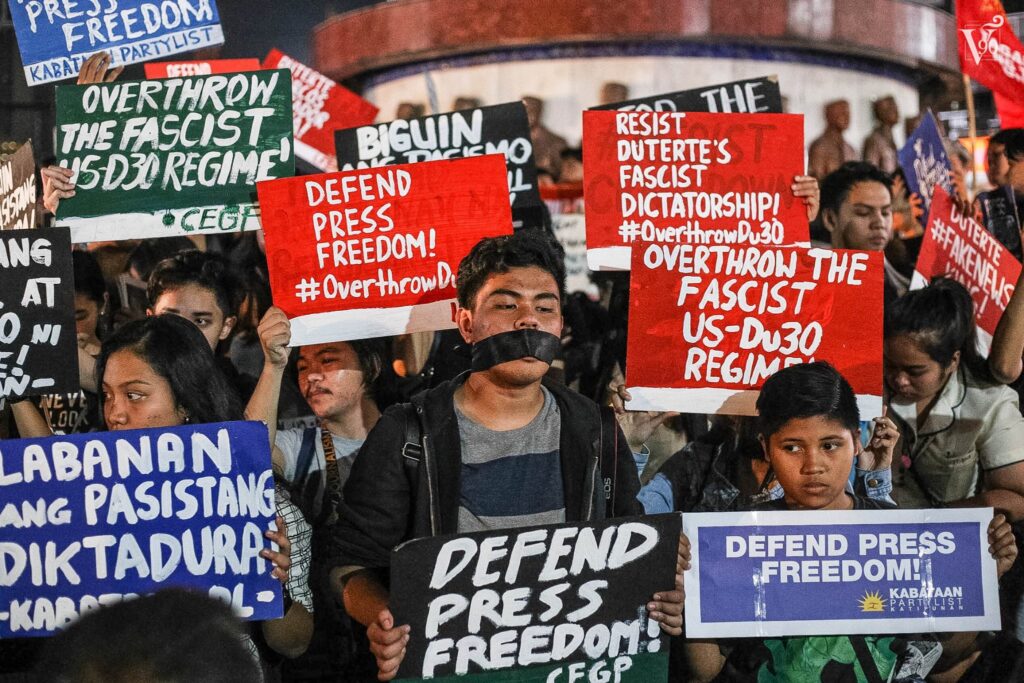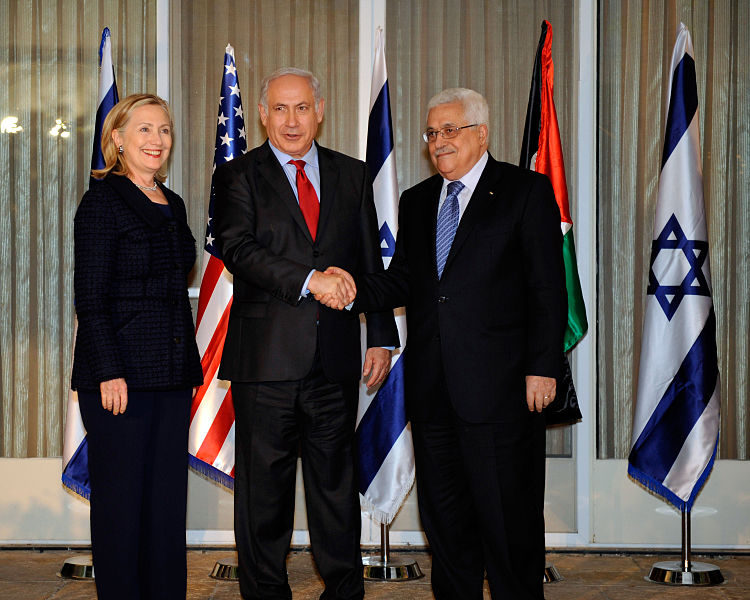Earlier this year, Filipino journalist Maria Ressa’s arrest became the focus of international attention. In an event that was later made the subject of the documentary “A Thousand Cuts,” Ressa and former colleague Reynaldo de Santos Jr were convicted of criminal libel by a Philippines court. This event was highlighted in the media worldwide, with Human Rights Watch calling it a “devastating blow to media freedom” and Forbes labeling it as casting a “darker shadow” over the state of press freedom in the Philippines.
The state of press freedom in the Philippines must be considered in terms of its implications for media law and the state of global media rights worldwide. What’s happening with the country’s erosion of press freedom can in fact serve as an important warning for democracy and democratic ideals across the globe.
The arrest of two journalists in the Philippines represents the decline of freedom of speech, and in effect, democracy, in the Philippines. Ressa, who was found guilty of “cyber-libel” with her former colleague under the Philippines’ 2012 Cybercime Prevention Act, had long served as an outspoken critic against President Rodrigo Duterte and his administration. As the co-founder of news site Rappler, she criticized Duterte’s “war on drugs,” exposing the corruption underlying political measures that have claimed the lives of more than 12,000 Filipinos.
A minor correction to a previously published article allowed Ressa to be tried. According to Rappler’s official timeline of the case, Santos Jr’s article in question linked former chief justice Renato Corona to allegedly corrupt businessman Wilfredo Keng. While the article was published in 2012, before the cyber-libel act was signed into law, it was edited again in 2014 to correct the misspelling of a single word. In 2017, Keng filed a complaint against Rappler regarding his representation in the article. The fact that the article was edited after the passing of the cyber-libel law allowed the two journalists to go to trial.
This technicality appeared to be only a strategic explanation behind Ressa’s arrest. It is the latest in a series of Duterte’s accusations against Rappler, many of which include allegations of tax evasion and promotion of “fake news.”
According to Reporters Without Borders (RSF), the Philippines currently ranks 136 out of 180 countries in the 2020 World Freedom Press Index. In 2019, it was 134, still a sharp contrast from its ranking of 127 in 2017. These are telling statistics to the decline of democracy in the Philippines. Ressa’s case should be analyzed as a case study of the suppression of journalists’ freedom of expression when it comes to criticizing the government.
In fact, the Duterte administration’s crackdown on media outlets is a clear indication that when there is a threat of political exposure, journalists are often the first scapegoat.
Since Duterte came into power, there have been numerous attempts by the government at controlling and even threatening the media. The Bayanihan To Heal As One Act was brought into effect in March 2020 during the coronavirus pandemic. Although it was described as a means for the government to exercise all powers necessary to manage the pandemic, RSF states that in all actuality, it has appeared to be a cover for the administration to avoid accountability for their public health management.
According to RSF, the government has used this law to justify their arrest of journalists who report on coronavirus prevention measures in the Philippines. Yet this isn’t all. In addition to current actions taken during the pandemic, Duterte has historically shut down any media that is often critical of the administration. The large Phillippine broadcast network ABS-CBN was forced to cease operations earlier this year for “alleged biased reporting.” This isn’t a surprise, given the president’s crackdown on press freedom as a whole, which includes prosecuting journalists, proclaiming journalists as worthy of “assasination,” and a slew of political actions taken against media outlets perceived to not align with the government’s agenda.
“Such practices,” writes RSF, “are the prerogative of totalitarian governments.”
As such, it is important to acknowledge press freedom as a key component of democracy. The current state of press freedom in the Philippines serves as a clear reminder that unwarranted censorship is often weaponized as a means of silencing individuals who aim to accurately and truthfully inform the public of the government’s doings.
As many have noted, Ressa’s arrest and the overall role in the decline of media freedom in the Philippines implies a greater threat that authoritarian leaders and governments pose to human rights. This is more than a domestic issue, but a global one.
When journalists are repeatedly condemned for their reporting, media worldwide actively pays the cost. When journalistic value is not attributed by its truthfulness, but how well it conforms to a political agenda, it becomes no longer journalism but propaganda. Journalists are fundamental in holding those in power accountable, and the Philippines’ crackdown on press freedoms tells the public to be wary of the inevitable parallels that occur across the world with political leaders, exposure of political corruption and the subsequent harassment of the journalists who bring to light those truths.
While it may be unreasonable to lambast authoritarian regimes as a whole, Ressa’s case demonstrates the extent to which a government that claims to be democratic will attempt to silence journalists. Her case is not an isolated incident, and it is only the latest example of how suppression of journalists is the first step to an eroding democracy in the Philippines, a country where democracy is supposedly built into the constitution.
By undermining the very foundation of the Philippines’ government through the media, the Philippines should not be considered a true, comprehensive “democracy” as the word applies to the ideal of freedom of expression. Democracy implies a sharing of information, but most importantly it requires the power of the citizens to keep the government in check without fear of retaliation.
In recent years, Duterte’s efforts to keep the media silenced have not gone unnoticed. After the ABS-CBN closure, the Philippines STAR voiced a strongly worded editorial in early 2020, arguing that it is necessary to prevent the shutting down of media organizations by political powers, as broadcast franchises must be free to operate without fear of political retaliation.
Journalists across the world have echoed their support for not only Ressa, but also press freedom. Sixty media freedom groups and organizations, including RSF and the International Center for Journalists, initiated the #HoldtheLine campaign to support Ressa in her quest to preserve and sustain democracy. The campaign has so far passed around a petition for the Philippine government to drop all charges against Ressa and Santos. American media such as USA Today have derided Duterte’s actions through opinion articles. David Kaye, the independent United Nations expert on freedom of expression, has condemned Ressa’s case and asked for a reversal of the arrest, claiming that criminalizing the press only demonizes journalism and prevents open debate in favor of political power.
When the government attempts to keep citizens in line and thwart individual liberties, it is no longer a democracy but an authoritarian state. International agencies and organizations must pay attention to the case of Ressa and the Philippines, which can serve as a precedent for how the media and democracy are regulated for the world.







